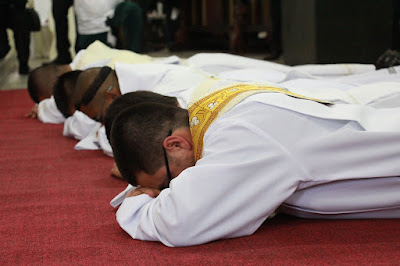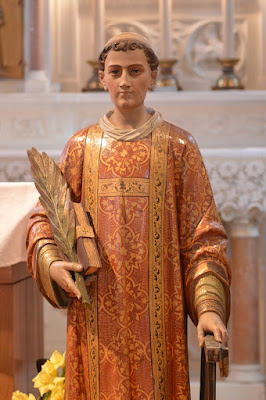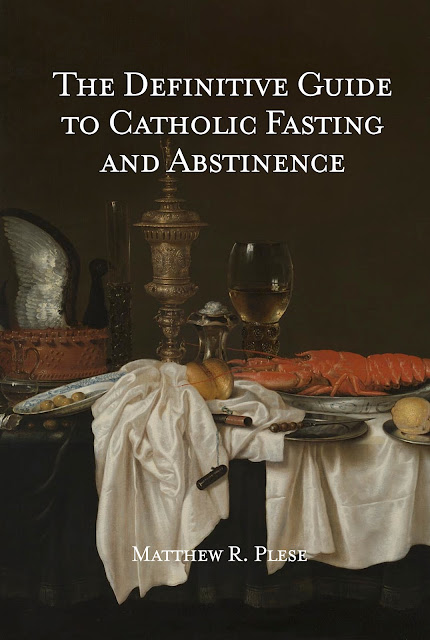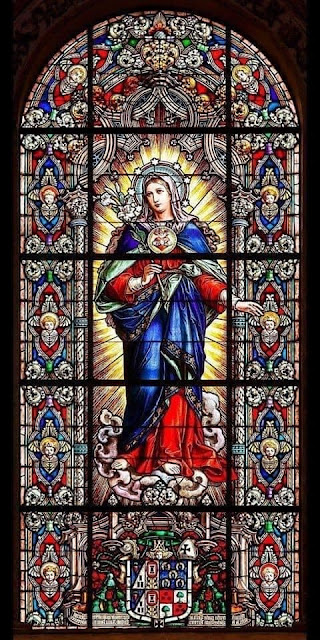Learning Our Religion: A Commandment for the Modern Catholic
“For there is no other Name [than Jesus] under heaven given to men, whereby we must be saved” (Act 4:12), and yet, how many of us feel a pull on our hearts because of it? How about when we hear St. Paul remind us elsewhere: “How then shall they call on Him, in whom they have not believed? Or how shall they believe Him, of whom they have not heard? And how shall they hear, without a preacher?” (Romans 10:14). How often do we think about the vast numbers of souls who die each day? How many go to hell? Do we ever think to ourselves, “Is there anything that I can do to stop it?”
We live in a state of complete moral collapse and deterioration in Catholic belief. Since 1970, according to data analyzed from USCCB records, the number of students in religious education has decreased by 60%, adult baptisms have fallen by 68%, and the annual number of infant baptisms has fallen by 18%. Furthermore, according to Sherry Weddell’s research published in Forming Intentional Disciples (Our Sunday Visitor, 2012), only 30% of Americans who were raised Catholic still practice the Faith, and 10% of all adults in the United States are fallen-away Catholics.
In our modern age, it is easy to become distracted by the use of technology, the day-to-day responsibilities of life, and the physical demands placed on us each day. How often does the average Catholic in the pew step back and actually pray? Do we attend daily Mass, recite the Divine Office, get in our daily Rosary, and practice thirty minutes of mental prayer a day? Part of the mission of our priests and deacons – as well as our lay teachers – is to help foster a true love of God and the Catholic Faith in the lives of ordinary Catholics.
Religious Education Is A Responsibility for Everyone but Especially The Ordained
Religious education is not an obligation for children alone. It is our responsibility as adults to continue learning our Faith in order to live it out and spread it. And it is a grave responsibility – and an honor – to help pass it on to others.
As stated by Holy Mother Church, « The faithful who devote twenty minutes to a half hour to teaching or studying Christian Doctrine may gain an indulgence of 3 years. The indulgence is plenary on the usual conditions twice a month if the above practice is carried out at least twice a month. »
The Church not only bestows upon parents the responsibility to educate their children, but She offers all the Faithful involved in learning and teaching religious Doctrine the temporal remission of sins. How truly generous Holy Mother Church is. Many times when we are given an obligation, and we perform, we do not receive a great reward for doing our duty. But in this instance, we are given, for the performance of this duty, the partial remission of the punishment due to our sins.
Teaching Christian Doctrine Is A Spiritual Work of Mercy
Our Lord Himself observed the Jewish law to the letter and affirmed that He had come to perfect, not abolish, the law (cf. Matt. 5:17). And the law of charity imposes on us who have been given the grace to be Catholic the responsibility to spread the Faith, to admonish sinners, to instruct the ignorant, to raise children in the Catholic Faith, and to be a role model to others. As King David exclaimed in the Psalms, “O how have I loved Thy law, O Lord! it is my meditation all the day” (Ps. 118:97). But, do we really love the Lord’s law? Do we love it enough to set down the television remote, the football, and our other comforts in order to pick up a copy of the Roman Catechism or the Lives of the Saints? And we do seek to pass on to others the fruit of our contemplation every week?
The world and the Church herself are in a state of unprecedented crisis, a crisis that is greatly exacerbated by the average lay Catholic failing to understand his religion. It was only a few decades ago that the illustrious Archbishop Fulton Sheen remarked: “Who is going to save the Church? Not our Bishops, our priests, and our religious. It is up to the laity. You have the minds, the eyes, the ears to save the Church. Your mission is to see that your priests act like priests, your bishops act like bishops and your religious act like religious” (Address to the Supreme Convention of the Knights of Columbus, June 1972). And we can help turn the tide by helping pass on both the knowledge of the fullness of the Faith and love for practicing the Faith.
Resources for Faith Formation in 2023 and Beyond
In our societal moral crisis, clarity is desperately needed. That is why using resources like the Baltimore Catechism or the Catechism of the Council of Trent is necessary still in our day. To this end, I’m happy to have just published “The Roman Catechism Explained for the Modern World” (available at https://amzn.to/3Q4AqZz), which explains for today’s Catholics the teachings of the Catechism of the Council of Trent applied against modern errors like liberalism, modernism, materialism, communism, and others.
I would also highly recommend the programs of CatechismClass.com, which I am honored to have helped since July 2010. The lessons follow a 7-step format with a final test at the end of each lesson. This format has been very effective for those we serve and may be a good format for any religious education classes which priests, deacons, or lay catechists lead:
- Introduction: Saint for the Day based on Liturgical Calendar, Description of the Lesson Topic
- Opening Prayer: For adults, a decade of the Rosary; for children, it is another prayer. Typically it is learned in both Latin and English.
- Scripture: A link to daily Mass readings and mention of Scripture that concern the lesson topic.
- Catechism References: References as they relate to the topic from a variety of catechisms.
- Integration: A personally written section that explains and expands upon the Scriptures and Catechism in light of the Church teaching, beliefs, writings of the saints, and other pertinent considerations.
- Activity: A way to put the lesson into practice. It may be prayers, a spiritual or corporate work of mercy, or many other activities meant to actualize what has been intellectually learned.
- Closing Prayer: For adults, an hour from the Divine Office; for children, it is a decade of the Rosary.
May St. Charles Borromeo, the patron of catechists, and St. Stephen, the patron of deacons, pray for our efforts to save souls and spread the doctrine of Christ to every corner of the globe, starting with our own family, friends, and parish.





